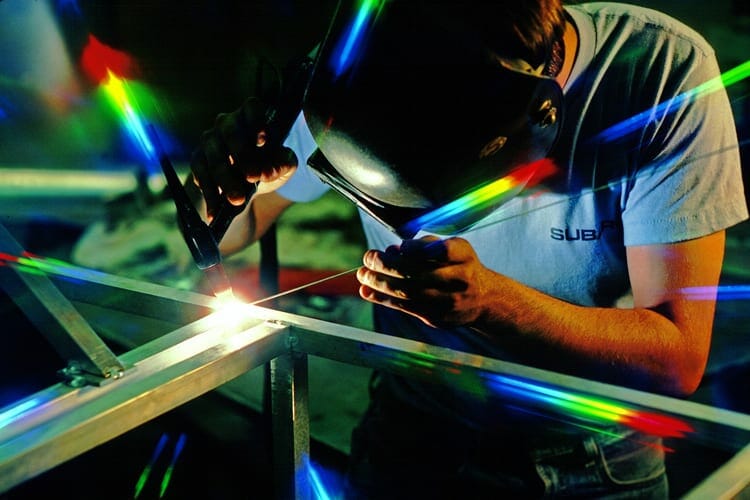Starting a metal fabrication business can be an exciting venture for anyone skilled in metalwork and design. With demand for fabricated metal products in industries ranging from construction to automotive, this field has significant potential for growth. However, succeeding in this sector requires strategic planning, investment in high-quality equipment, safety protocols, and financial management. Here’s what you need to know to launch a successful metal fabrication business.
LEARN MORE: Read the latest business news here
Researching the Market and Defining Your Niche
Before launching, conduct thorough market research to understand the demand in your area and define a niche. Metal fabrication includes various specialties such as custom metalwork, structural fabrication, and mass production. By understanding the needs of your target market, you can position your business to serve a specific niche that sets you apart from competitors. For example, offering custom ornamental metalwork or specializing in stainless steel fabrication could help you gain a competitive edge. Research competitors and connect with potential clients to learn about the gaps in local services and identify opportunities to stand out.
Planning Your Facility and Layout
Choosing the right location for your metal fabrication shop is essential. Consider factors like proximity to clients and suppliers, availability of skilled labor, and ease of transportation. The layout of your workshop is equally important, as a well-organized space will help you streamline your workflow and maximize efficiency.
Create zones for different processes, such as cutting, welding, and assembly. This way, you’ll minimize wasted time and reduce the risk of accidents. Ensure ample space for storage of materials and finished products, and prioritize safe pathways for moving heavy materials. A functional layout will make day-to-day operations smoother and safer.
Essential Equipment for Metal Fabrication
Equipping your shop with the right machinery is a significant step toward productivity and quality. A metal fabrication business generally requires tools for cutting, bending, welding, and assembling metals. Some essential equipment includes CNC machines, plasma cutters, and metal shears.
Purchasing quality machinery is often a considerable investment, so consider whether leasing or buying is the right choice for you. Leasing may offer flexibility and lower initial costs, whereas buying equipment outright may result in long-term savings. Research trusted brands to ensure that the equipment you choose can withstand heavy use and produce precise results.
Ironworker Tools: A Versatile Addition
Investing in ironworker tools can greatly enhance your capabilities. These versatile machines perform multiple tasks, including punching, shearing, and bending, which makes them ideal for a fabrication shop. With an ironworker, you can cut down on time and reduce the need for multiple single-purpose tools.
For a small or medium-sized shop, multi-functional equipment like an ironworker can be especially valuable. Onix Machinery provides a range of ironworker machines that are durable and efficient for various metalwork needs. Check out their selection to find a tool that best suits your shop’s requirements and budget.
Ensuring Safety and Managing Noise in the Workshop
Safety in a metal fabrication shop is paramount. The nature of the work involves heavy equipment, sharp tools, and loud machinery, so implementing strict safety protocols is non-negotiable. Equip your staff with safety gear like gloves, goggles, and hearing protection, and make sure your shop complies with OSHA standards.
Noise management is another critical aspect of maintaining a safe and productive work environment. Excessive noise can affect employees’ hearing, concentration, and overall comfort. Assess the noise levels in your shop using an acoustic analysis tool from VAW Systems to measure reverberation time and identify areas where noise-reducing solutions can be implemented. Consider adding soundproofing materials, and acoustic panels, or even modifying the layout to reduce sound travel within the space.
Managing Costs and Financial Planning
Launching a metal fabrication business involves both initial and ongoing costs, including rent, utilities, payroll, and equipment maintenance. A detailed budget and a clear financial plan are essential to keeping your business financially stable. This will also help you understand your cash flow, which is crucial for meeting both operating expenses and investment in growth.
Consider working with a financial advisor or accountant to build a realistic budget that accounts for potential fluctuations in demand. Additionally, if you need financing, research small business loans, grants, or other funding options that may be available to support manufacturing businesses. Good financial planning will help you navigate economic shifts and unexpected expenses more easily.
Marketing Your Metal Fabrication Business
Effective marketing is key to building your client base. Begin with a professional website that showcases your services, capabilities, and previous projects. Consider including client testimonials and a portfolio to boost credibility and demonstrate expertise. Establishing a presence on social media platforms like LinkedIn and Instagram can also help you connect with industry professionals and showcase your work.
Networking with local business groups and attending industry events can expand your client reach and build a positive reputation. Keep in mind that the quality of your work and timely delivery will serve as the best long-term marketing strategy, as satisfied clients are likely to recommend your business.
Building a Skilled Team
Hiring the right team is fundamental to the success of your fabrication shop. Metal fabrication requires specialized skills, so look for employees experienced in welding, metalworking, and CAD design. Training your team to operate specific machinery and adhere to safety protocols is equally important.
Creating a positive work environment is also key to retaining skilled employees. Provide regular training to keep their skills up to date and foster a collaborative culture. This will not only improve productivity but also ensure your shop’s operations run smoothly.
Conclusion
Launching a metal fabrication business is a rewarding but challenging endeavor. With thorough planning, the right equipment, and a skilled team, your business can thrive in this competitive industry. By focusing on key areas like market research, safety, and financial planning, you’ll set a strong foundation for success. Take the time to make informed decisions, and you’ll be on the path to establishing a successful and resilient fabrication business.




